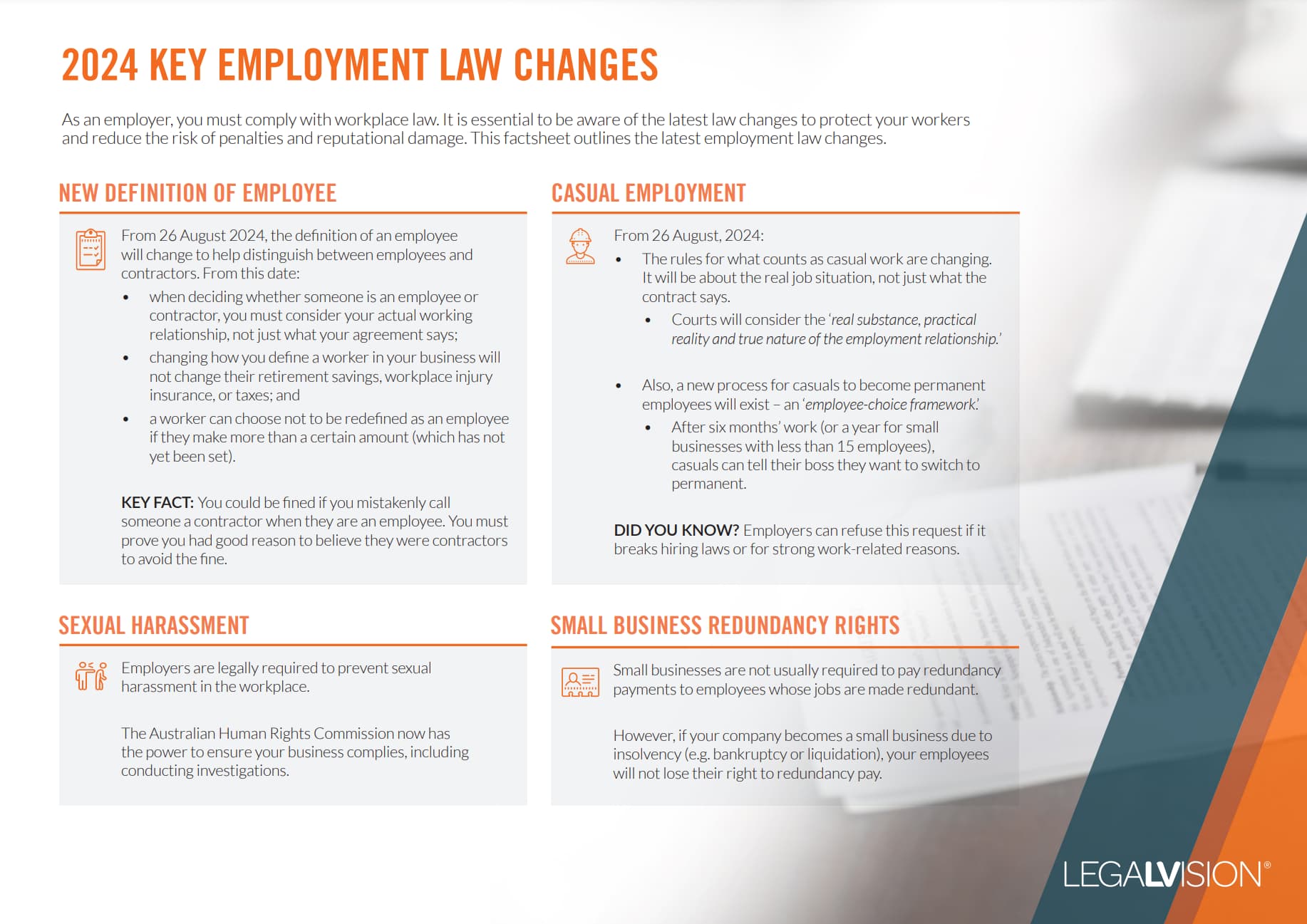Clear and well-drafted contracts are not only necessary in the aged care industry; they are the backbone of every successful transaction. Contracts ensure your business can function smoothly and minimise liability. As an aged care provider, navigating contracts is a crucial skill. This article unpacks key contracts you need in the aged care sector.
What is a Contract?
A contract is a legally binding agreement that outlines specific terms, obligations and rights. A contract can be either written or oral. The purpose of a contract is to record parties’ obligations under an agreement, making it more likely people will do what they say. For example, if you agree to provide care to a nursing home resident each month, you must honour this commitment unless the contract or the law says otherwise.
What Makes a Valid Aged Care Contract?
Understanding the elements of a valid contract empowers you to navigate the world of business contracts and agreements in aged care. These elements are the foundation of any contract:
- Agreement between the parties: An agreement comes through an offer and subsequent acceptance. Offers should be clear, specific and unequivocal to avoid misunderstandings.
- Intention to create legal relations: The parties must want to enter into a legally binding contract. The surrounding circumstances can often reveal this.
- Exchange of value: Parties exchange something of value. For example, you might agree to pay money in return for clothes.
- Capacity to contract: In some situations, young people under the age of 18 or mentally impaired persons are deemed incapable of consenting to a contract.
- Lawful purpose: There must be a lawful purpose to the contract. For example, you cannot contract to sell illegal drugs.
Key Types of Contracts in the Aged Care Industry
Understanding the different types of agreements in the aged care sector is crucial. These include, but are not limited to, the following types of contracts.
| Contract | Description |
| Customer Agreements | These are agreements with your aged care customers. The type of agreement will depend on the type of care you provide. For example, if you are a home care provider and provide services to a customer under a Home Care Package, you will need to enter into a Home Care Agreement with your customers. Alternatively, if you run a residential aged care facility, you will need to enter into a Residential Aged Care Agreement with your customers. This agreement covers the services, care, and support recipients receive while living in a nursing home and what they pay. |
| Employment Contracts | Employment agreements cover your staff or contractors who perform jobs for your business. |
| Contractor or Brokerage Agreements | If you engage a third party to deliver services to your aged care customers on your behalf, you will need to enter into a brokerage agreement or a contractor agreement (depending on the specific arrangement). These arrangements are useful where you may not have enough staff, or may need staff that offer different types of services, to your aged care customers. For example, you may engage a broker who finds medical equipment for you to deliver or use when providing care services to your aged care. |
Each of these contracts operate within a regulatory context that includes rules about that type of agreement. To this extent, your right to freely contract is constrained by law. For example, employment contracts will be affected by the Fair Work Act 2009 (Cth).

As an employer, it is essential to understand what employment laws have changed and their implications for your business — particularly the changes to the Fair Work Act 2009 through the new Closing the Loopholes legislation.
How to Satisfy Contractual Duties
A contract creates legal duties that your business must comply with. Not satisfying your contractual obligations can be costly because it can result in damages. The following suggestions will help you mitigate legal risk:
- Keeping copies of your contracts: A copy of the agreement is a valuable reference in a dispute between you and another party. A systematic filing system to store contracts and other vital legal documents will ensure you can easily find them when needed.
- Review contracts carefully: Before signing a contract, ensure you can perform what it requires. Check for unfair contract terms that disproportionately favour one party and amend them to balance them.
- Drafting clear and concise terms: By clearly and concisely addressing critical aspects such as identifying the contracting parties, payment terms, quality standards, and dispute resolution mechanisms, you can avoid potential misunderstandings and ensure all parties are on the same page.
Key Takeaways
A contract is a critical document that requires careful consideration. By understanding the key components of a contract and how to satisfy contractual duties, aged care providers can ensure they avoid potentially costly breaches. Remember that a contract operates within a broader legal context, so it is important to study federal, state or territory laws that may impact your contractual duties.
If you require assistance managing your contract for your aged care business, our experienced contract lawyers are here to support you as part of our LegalVision membership. For a low monthly fee, you will have unlimited access to lawyers to answer your questions and draft and review your documents. Call us today at 1300 544 755 or visit our membership page.
We appreciate your feedback – your submission has been successfully received.










